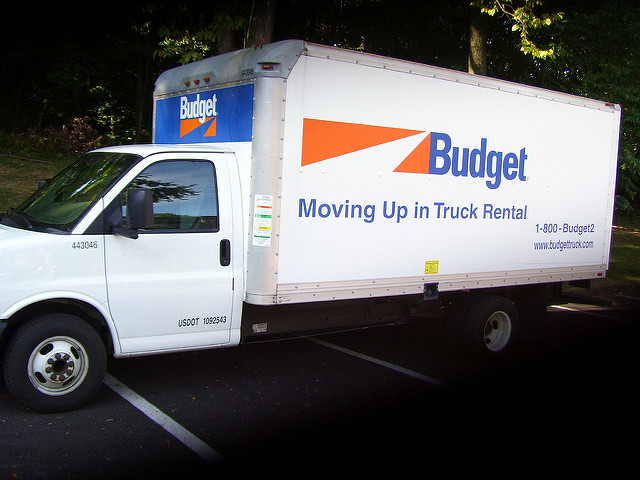Moving for a new job is exciting, and it’s even better when your company offers to pay for a portion of your relocation expenses. After all, moving isn’t cheap. In fact, in 2014, companies in the U.S. spent close to $13 billion on corporate relocations, with the average cost of shipping goods coming in at about $13,000 per employee.
So while you’re outlining your moving checklist, why not read through these tips on how to manage your relocation money? Who knows – if you plan well enough, you move with some cash left over!

Photo by Pictures of Money/Flickr
The first step toward properly allocating your moving funds is to understand the plan your employer is offering. Relocation packages — sometimes called “relo” benefits — vary from company to company, but generally they fall into one of four categories: lump sum, reimbursement, direct bill, or third-party relocation. To maximize that relo assistance, and to avoid incurring out-of-pocket expenses, be sure you know which relocation package you have, and then plan your move accordingly.
Take extra care to review your plan’s payback clause, which explains how the company will recoup the expense of your move if you quit within a predetermined amount of time after the relocation. If you have any questions at all, ask your company’s benefits coordinator for clarification.
Tip: Be sure you know what your company considers unapproved expenses — any products or services that won’t be reimbursed — so you aren’t left several hundred dollars short after your move.
In an effort to hold on to as much of your relocation money as possible, you may have considered moving yourself instead of hiring a professional moving company — but don’t assume a DIY move is necessarily cheaper. Get at least three quotes from reputable moving companies and compare them to the expense, stress, and liability associated with moving everything yourself.
Don’t forget to factor in ancillary costs of a self-move, too, including food and lodging for multi-day routes. It’s possible that hiring professional movers will actually cost you less, especially if you’re relocating to another state.
Tip: Full-service moving companies charge in the range of $30 to $45 per hour for each laborer. Luckily, there are a few things you can do to help expedite your move and keep those labor costs down, including clearly marking what needs to be moved, making sure stairs and walkways are free of obstructions, and keeping pets and young children safely out of the way.
Whether you hire a professional moving company or choose a DIY move, shedding some of your things can help you keep more relocation money in your pocket. Typically, professional moving companies base their fee on cargo weight, and some companies charge an extra fee for handling oversized furniture or especially heavy objects. If you’re moving yourself, more items will require a bigger (and more expensive) moving van.

Photo by Phil! Gold/Flickr
So make a special effort to sell or donate big, replaceable items before moving day. The less stuff you have to move, the less you will pay.
Tip: When deciding what to keep and what to get rid of, have a floor plan of your new home or apartment handy, and refer to it often. This helps ensure you don’t waste your relocation bonus moving things that will not fit in your new residence.
Buying dozens of moving boxes can put a dent in your relocation allowance. The number of boxes needed to pack a three-bedroom house, for example, could run you upward of $400. Save some cash by gathering free boxes for more durable items like kitchen supplies and toys. With the money you save, you can splurge on a few specialty boxes, such as picture or wardrobe containers, to protect valuable or fragile items.
There are several places you can find free boxes. In addition to tried-and-true options like office buildings, grocery stores, and liquor stores, also check auto supply stores and recycling centers. Another alternative to purchasing boxes is renting them through a service like BungoBox.
Tip: If you hire a full-service moving company to pack your things, you may have to purchase all of your boxes from the company. While this may increase your moving costs, it will lower your stress and free up time for you to tackle other tasks on your moving checklist. Plus, you’ll feel at ease knowing your things are packed professionally and therefore less likely to be damaged.
Relocation expenses can add up quickly, but planning your move carefully and using these tips will help you maximize your relo money. Plus, if you plan well, you might have some cash left over for a celebratory night out in your new town!
Do you have more suggestions on how to stretch a relocation budget? Share them in the comments below.